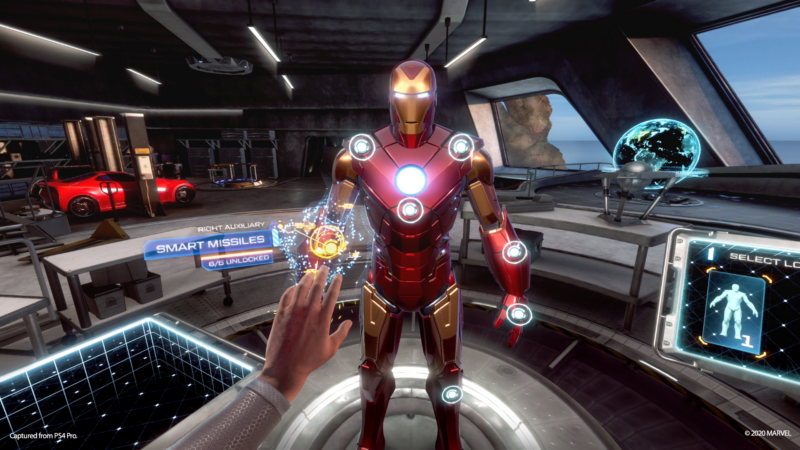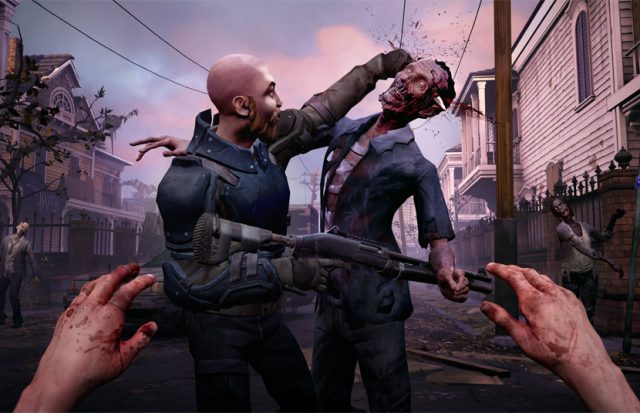As the Company Continues to Grow
good money after bad? Or vice versa? —
Meta continues to shovel money into the growing VR gaming segment
Revenues are increasing, but maybe not fast enough to justify massive costs.

Enlarge / Previously a PlayStation VR exclusive, Iron Man VR will be coming to Quest 2 after Meta's purchase of developer Camouflaj.
Sony
Meta's Connect keynote presentation Tuesday afternoon spent a lot of time talking about how virtual reality—and the coming high-end Quest Pro headset—would help revolutionize the future of work and socializing. But the company also spent a lot of time talking up the gaming sector that has so far been the primary use case driving the relative market success of the Quest 2 headset.
To reinforce that success, the company formally announced its recent acquisition of three more major VR gaming studios today:
- Twisted Pixel, the studio behind the creepy Wilson's Heart (which Meta actually stealthily bought last November).
- Camouflaj, one of the developers behind 2020's PSVR exclusive Iron Man VR (which will now be coming to Quest 2 on November 3).
- Armature Studios, the developers behind the popular Resident Evil 4 VR port for Quest 2.
Those recent purchases add to a recent Meta game studio acquisition spending spree that already included Beat Games (Beat Saber), Ready at Dawn (Lone Echo), Sanzaru Games (Asgard's Wrath), Downpour Interactive (Onward), and BigBox VR (Population One). In July, the Federal Trade Commission filed an antitrust lawsuit to try to stop Meta's purchase of Within, makers of the popular VR fitness app Supernatural.
Growing, but how fast?
Meta's additional spending on even more VR developers comes as Quest 2 headset owners seem to be spending more than ever on software. All told, Meta said today that $1.5 billion had been spent on games and apps on the Quest store since the platform launched in spring 2019. That's up from $1 billion in cumulative app revenue the company announced in February, suggesting VR spending is accelerating at a decent pace.
On the other hand, Meta's 30 percent share from those sales amounts to just $450 million in direct revenue over more than three years. For context, Microsoft recently revealed that it brought in $2.9 billion in revenue just from a single year of Xbox Game Pass console subscriptions, making the VR gaming market seem like a relative drop in the bucket.
Meta's VR software revenue is still well short of the $2 billion Facebook paid for Oculus eight years ago. And that number doesn't even capture the hefty costs for operations, R&D, and acquisitions the company has incurred since the purchase.
Meta's "Reality Labs" division (which includes the entirety of its VR business) has lost roughly $10 billion over the last year, according to data from the company's quarterly earnings statements. John Carmack, who served as Oculus CTO until 2019 and still serves as an adviser to the company—said in an August podcast interview that he gets "sick to my stomach thinking about that much money being spent. But that's how they demonstrate commitment to this ... Google goes and cancels all these projects, while Meta is really sticking with the funding of VR and AR even further out with it."
When you succeed, we all succeed?

Enlarge / The Walking Dead: Saints and Sinners has brought in an impressive $50 million on Quest VR, proving at least some titles can find a significant market on the platform.
Despite those heavy losses, Meta still expressed enthusiasm over how many individual developers found success with Quest 2 games. In a flurry of statistics, the company revealed that:
- "Roughly one in three" of the 400 apps on Quest 2 is "making revenue in the millions."
- That includes 55 titles that have grossed over $5 million (more than double the number that had hit that mark as of last year) and 33 titles that have already grossed over $10 million (up from 22 such titles in February).
- Near the very top of the Quest 2 revenue heap, The Walking Dead: Saints & Sinners has made $50 million, "nearly double its revenue on all other platforms," Meta said.
- Quick sellers like Resident Evil 4 can make $2 million in revenue on Quest 2 in just 24 hours after launch. Just below that, games like Blade and Sorcery: Nomad and Zenith: The Last City, made their first $1 million on Quest in 48 hours and 24 hours, respectively.
- Bonelab set the record for fastest Quest 2 sales, though, earning its first million dollars in "less than an hour."
Those are encouraging numbers for a market segment that seemed like a hopelessly small niche just a few years ago. But Meta (and its app developers) will have to see years of similarly quick revenue growth before the company's extremely heavy investment in the space will come close to paying off.
Elsewhere in its presentation, Meta talked up some upcoming Quest games. Among Us VR—a first-person take on the viral social deduction sensation that we last saw in April, will finally launch on November 10. And Chapter 2 of the Walking Dead: Saints and Sinners franchise will show off its New Orleans setting in December.
Xbox Game Pass subscribers will soon be able to access their Xbox Cloud Gaming library through their headset, playing streaming titles on a massive, virtual 2D screen projected in VR.
Source: https://arstechnica.com/gaming/2022/10/meta-continues-to-shovel-money-into-the-growing-vr-gaming-segment/
Post a Comment for "As the Company Continues to Grow"